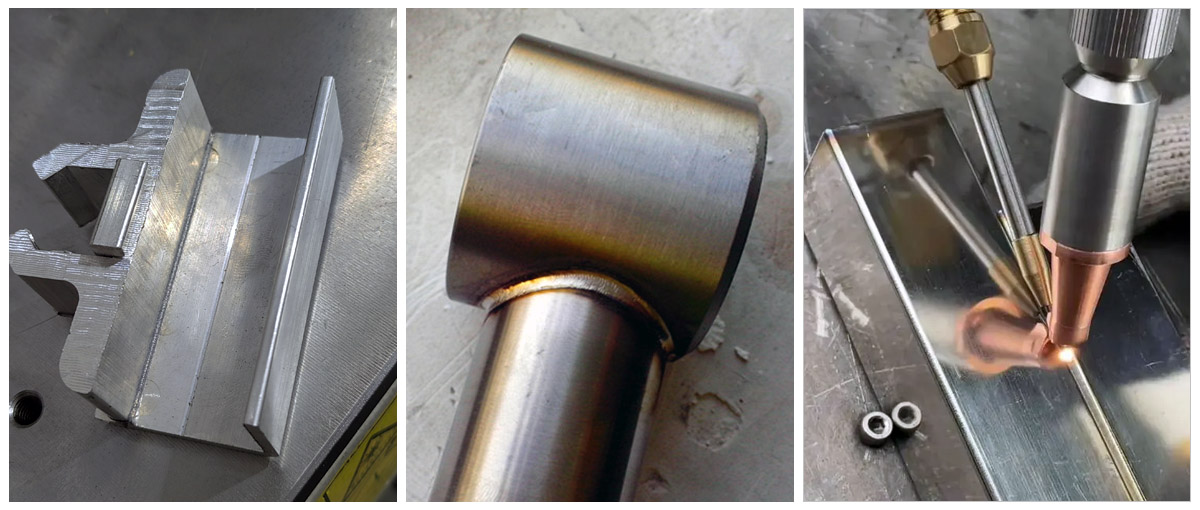Laser welding technology has transformed the landscape of industrial manufacturing, offering precise and efficient solutions for joining materials. This advanced technique utilizes a high-energy laser beam to melt and fuse materials together, providing a clean and precise welding process.

Laser welding technology is increasingly used in industrial manufacturing. It has the advantages of high efficiency, precision, and cleanliness, and is suitable for welding various materials and complex structures. The following are the main applications of laser welding technology in industrial manufacturing:
1. Automobile manufacturing: Laser welding is widely used in body welding, body component welding, chassis welding and other processes in automobile manufacturing to improve welding quality and production efficiency.

2. Aerospace: In the aerospace field, laser welding can be used for high-precision welding of aircraft structural parts, engine components, and spacecraft parts to ensure the quality and reliability of the parts.
3. Electronics industry: Laser welding is widely used in the electronics industry and is used for fine welding of microelectronic equipment and electronic components, such as welding circuit boards, connecting wires, etc.

4. Medical devices: In medical device manufacturing, laser welding can be used for assembly and welding of precision instruments and medical equipment to ensure the accuracy and damage-free welding parts.
5. Optical lenses: Laser welding technology is widely used in the optical industry and is used for the assembly and welding of optical lenses to ensure the accuracy and stability of the optical system.
6. Metal processing: In the field of metal processing, laser welding can be used for the assembly, repair, and connection of fine parts, such as precision molds, metal parts, etc.

7. Pipe manufacturing: In the pipe manufacturing industry, laser welding can weld pipes of different materials, improve welding speed and quality, and is suitable for pipe connection and sealing.
8. Sensor manufacturing: In the manufacturing field, laser welding is also widely used in sensor manufacturing, such as the assembly and connection of fiber optic sensors, gas sensors, etc.

Advantages of laser welding technology in industrial manufacturing:
● Precision in Industrial Manufacturing: Laser welding technology enables manufacturers to achieve unparalleled precision in joining materials. The focused laser beam allows for pinpoint accuracy, resulting in high-quality welds that meet the stringent requirements of industrial applications.
● Increased Efficiency in Production: In the realm of industrial manufacturing, efficiency is key. Laser welding technology offers rapid processing speeds and minimal heat-affected zones, leading to increased productivity and reduced production costs. This technology is widely used in automotive, aerospace, and electronics industries for its efficiency in mass production.

● Versatility in Applications: The versatility of laser welding technology makes it suitable for a wide range of industrial applications. Whether joining dissimilar materials, creating intricate designs, or welding thin sheets, laser welding can accommodate various manufacturing needs with precision and consistency.
● Enhanced Quality Control: Quality control is paramount in industrial manufacturing, and laser welding technology plays a crucial role in ensuring the integrity of welded components. The non-contact nature of laser welding minimizes distortion and reduces the risk of defects, resulting in high-quality welds that meet industry standards.

● Environmental Benefits: In the era of sustainable manufacturing practices, laser welding technology offers environmental benefits such as reduced energy consumption and minimal waste generation. By using a focused laser beam, manufacturers can minimize material waste and energy usage, contributing to a greener industrial landscape.
As technology continues to advance, the future of laser welding in industrial manufacturing looks promising. Innovations such as hybrid laser welding and additive manufacturing are pushing the boundaries of what is possible, opening up new possibilities for efficient and cost-effective production processes.

In conclusion, laser welding technology has revolutionized industrial manufacturing by providing precise, efficient, and versatile solutions for joining materials. As the industry continues to evolve, laser welding remains at the forefront of innovation, driving the next generation of manufacturing processes.



























